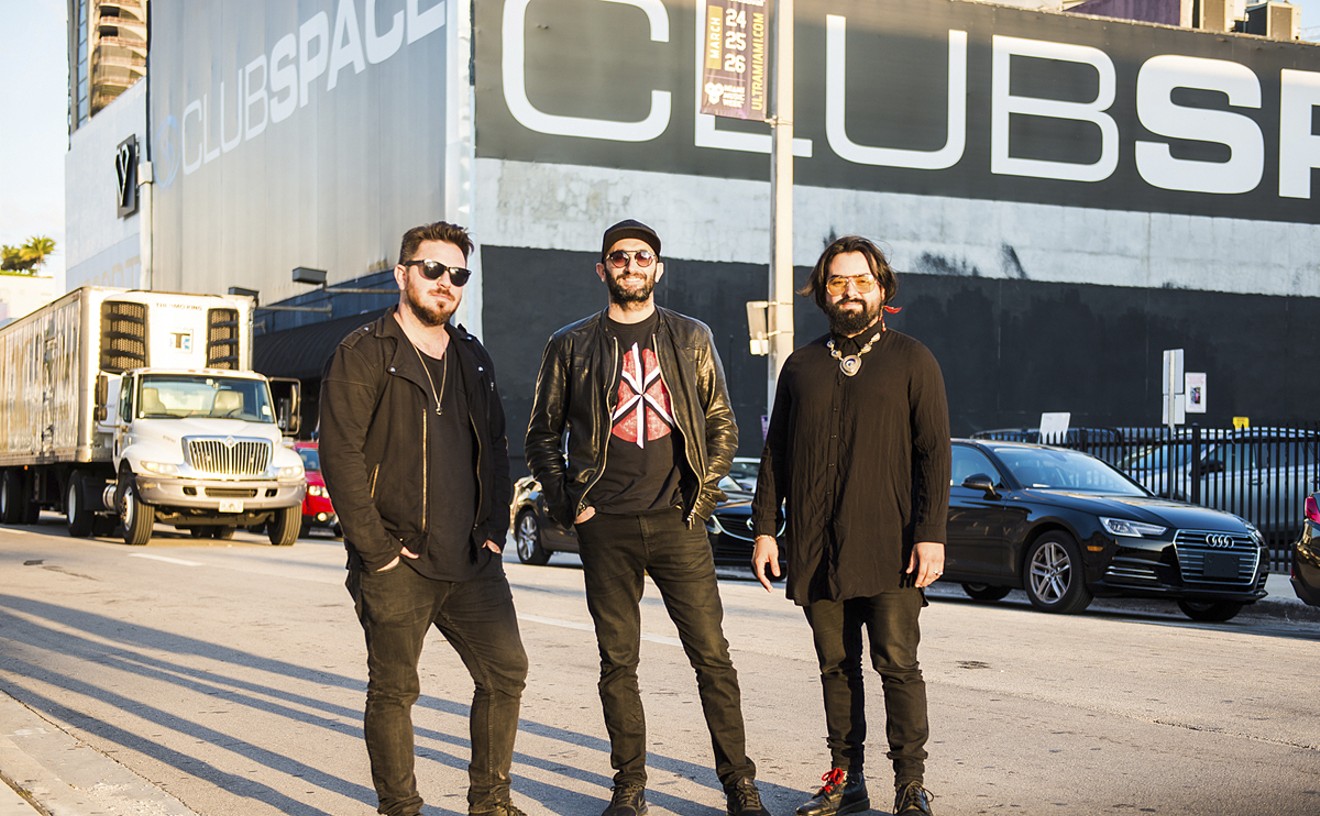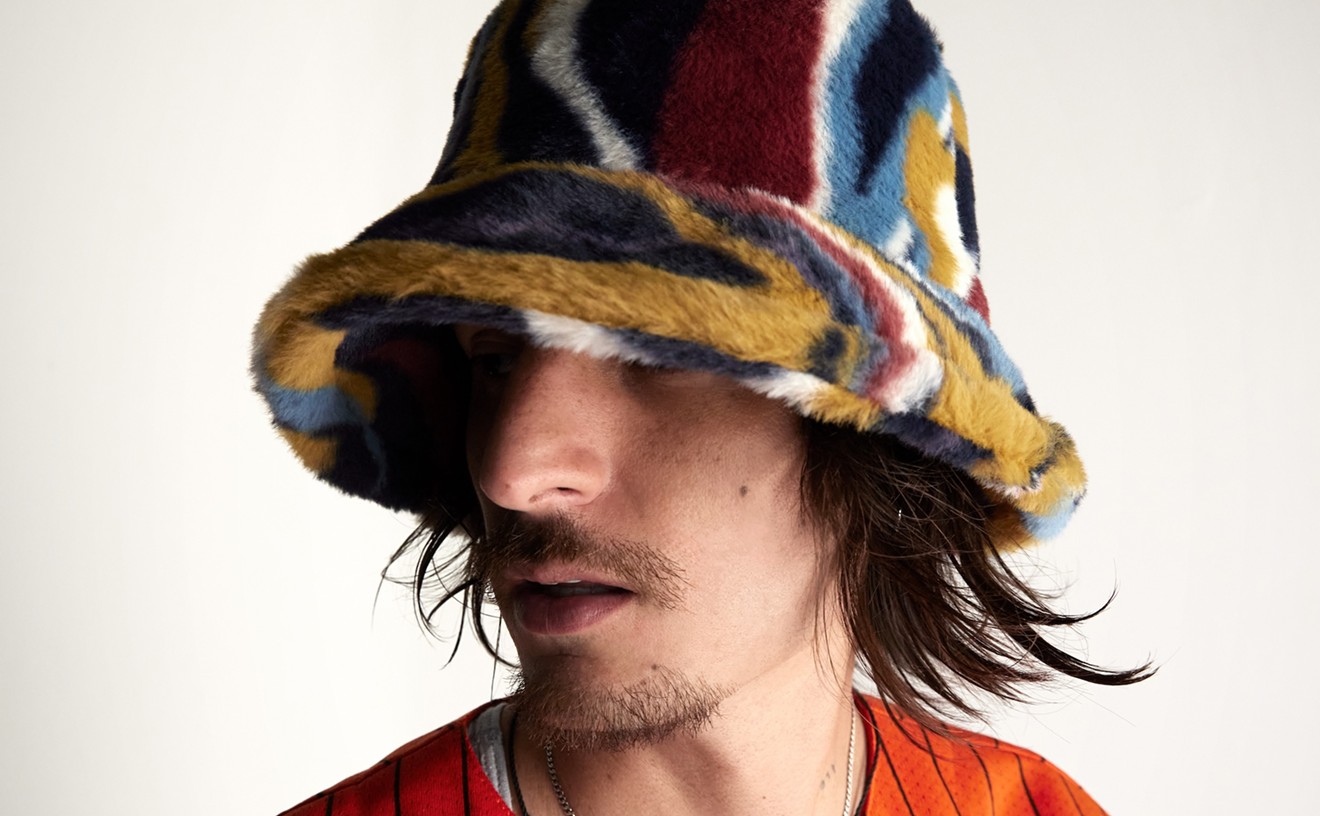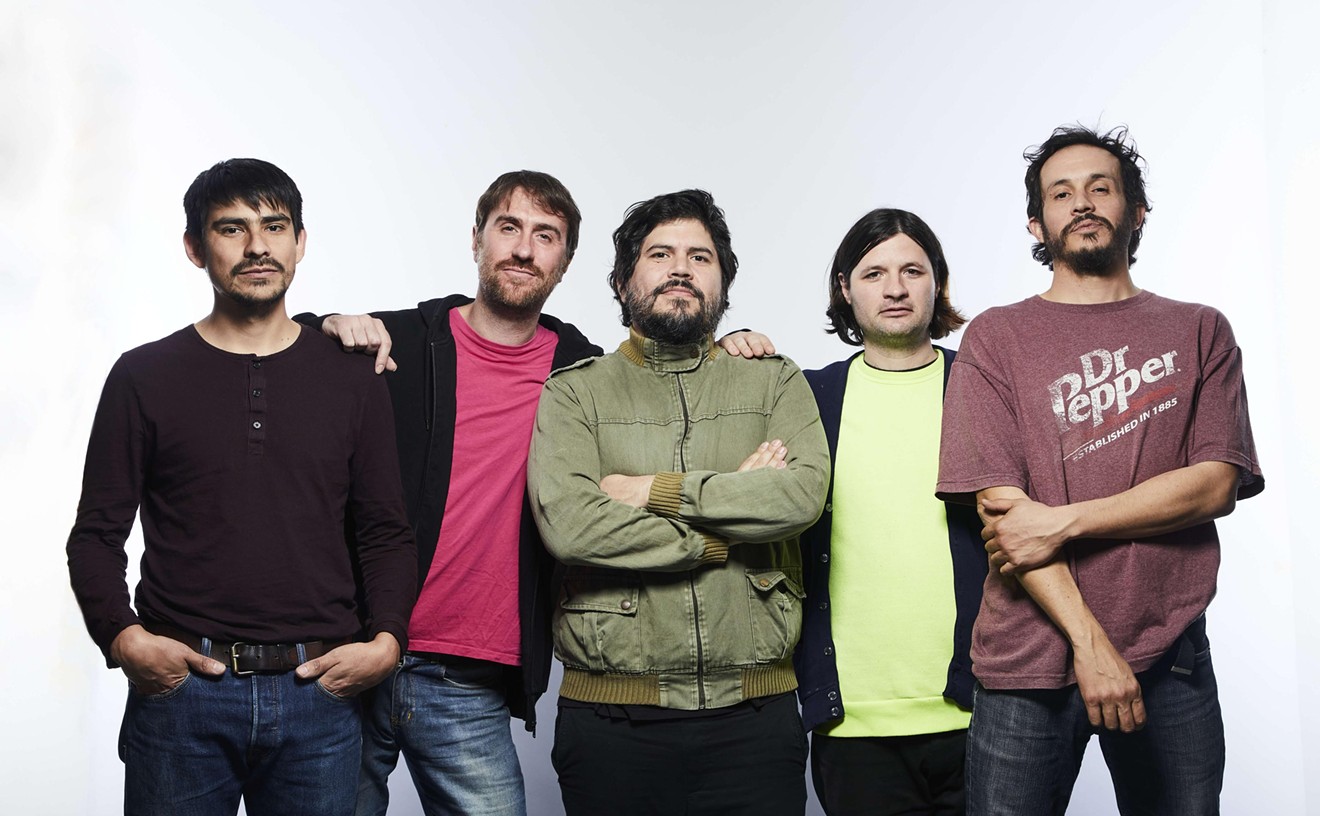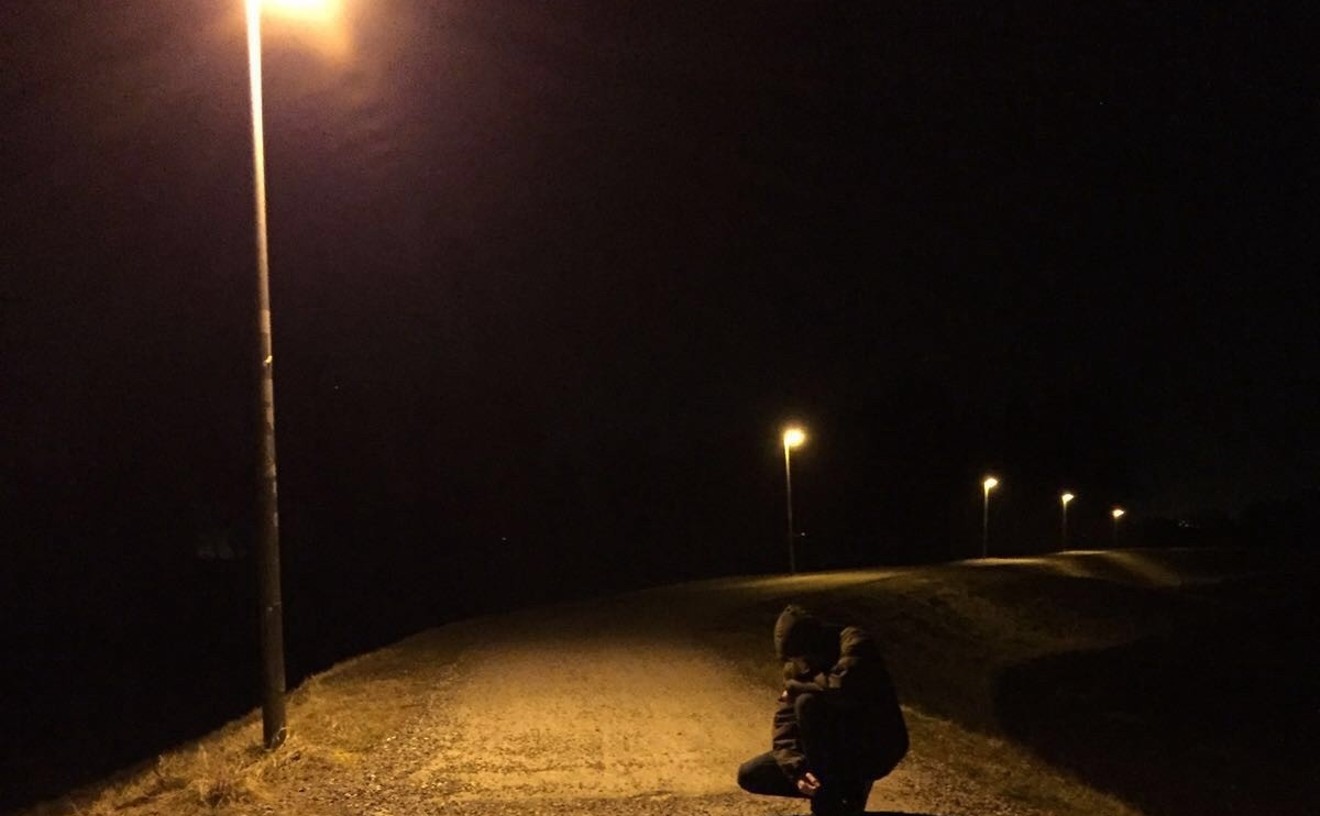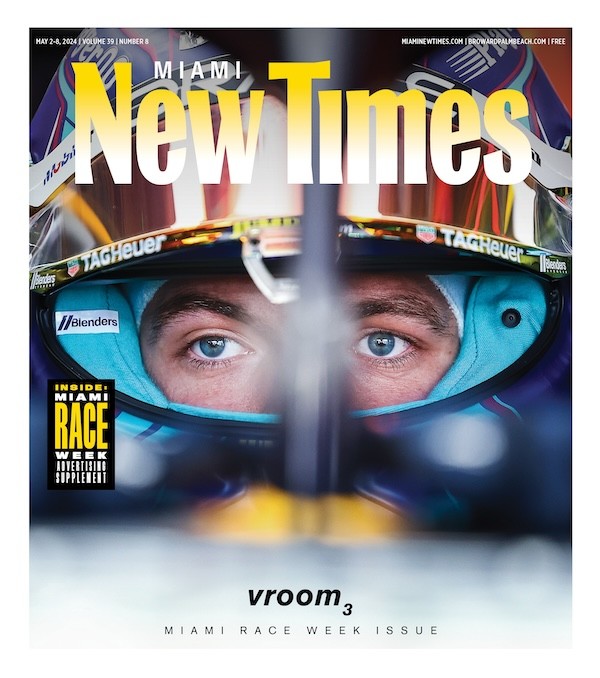Since her 2009 debut, Tune-Yards’ Merrill Garbus has consistently pulled off the odd feat of coupling insanely vibrant dance numbers that often sound like the inner rumblings of a piñata on the verge of bursting with weighty lyrics about everything from body image and socioeconomic privilege to gentrification, resource access, and clean-water concerns.
For her latest, Nikki Nack, an album largely inspired by her time studying under Haitian-born teacher Daniel Brevin, Garbus spent two years learning syncopated rhythms, even traveling to Haiti with Brevin and seven other students for complete immersion in the music.
Yesterday, as Garbus’ tour bus pulled into Columbia, South Carolina, she stepped outside to stand in the sunlight (because “there is absolutely nothing like spring in the south”) to speak over the phone with New Times about her time spent in Haiti, the importance of discussing cultural appropriation in context of her work, and collapsing stodgy beauty norms.
New Times: Can we talk about your time in Haiti? You were there during the rara season, which is happening right now. Haiti is such an important place in Miami, not just because of mere proximity, but also because of its huge influence on South Florida culture and the number of people from Haiti who consider South Florida to be home. How did the experience there help shape the record Nikki Nack?
Garbus: I don’t know, you start doing interviews about something and it turns into kind of publicity for something else. But really, it was about this important relationship with my teacher. He is a Haitian drummer and I studied a lot with him and spent a lot of hours playing drums with him. He has been so generous in sharing his knowledge of Haitian drumming and he intended to pass on a love of Haiti and Haitian traditional culture, because that is really his aim in teaching, to carry on that tradition. I mean, it must be scary to pass that on to students for someone who had studied Haitian culture, vodou and drumming and dance. If I’m correct, vodou is not something that is accepted by all Haitians as a culture they want to be attached to, and he was saying that it has been a real struggle to get a younger generation of Haitians to embrace vodou in dance and music, etc. It is such a big, huge world of stuff. I don’t know, but I did go to Haiti and went to see ceremonies around the Easter holiday, and it was just amazing. It’s a different perspective that a lot of people outside of Haiti have been affected by over the years.
Do you feel like there is an anthropological aspect to your work?
Yeah, I guess so. I also appreciate that it’s not fully anthropological, because I think that being a scientist, even a social scientist, you have to have a dispassionate gaze on things. I did studies on anthropology and it freaked me out, because it is abandoning yourself to what a culture has to give to you. What has been a really important part of traveling is really just bonding with people sinking into what life in that place is like and not how it compares to your own culture but what is it like.
But then there is also criticism of cultural appropriation in your work, lifting music from other cultures from a position of privilege. Do you have a constant inner dialogue on this?
Yeah, yeah. I mean, because I am appropriating music from other cultures. So the inner dialog is always there. I’m doing it and it’s becoming who I am as a musician. And then the inner dialog becomes OK, so what are you going do about that now? And in some cases, the stuff that makes me feel better would be like, Well, what do I think needs to happen. And in the case with my teacher, it was discussing what was OK. Like, how do I bring this music in a way that is respectful? I also think trying to open up discussions on what the inequality really is. People could argue that "Well, everyone steals everyone’s music." There are certain aspects of Haitian culture that are taken from Western music. However, the economic inequality is so great that it’s not a fair get in terms of promotion of music and access to resources. The other option is to just avoid all music and avoid the complex issue. I mean, I don’t know what music I would be singing then, I don’t even know what it would sound like. There is all this music that I do come from, Appalachian music. My mom is from Kentucky, but that would feel like appropriation too, because I don’t live in the mountains of Kentucky. So there’s all this dialog and I decided to just jump into the dialog of what it culturally unclear instead of avoiding the joy of music that sets my heart on fire.
Do you think it’s possible to use your position to raise the conversation on things like safe-water access, gentrification, police violence that might not ordinarily be in a dance song?
Yeah, I think so. Although, sometimes I question if people really want to hear that. I think some people really do. And then what I worry about is, in an effort to excuse myself for cultural appropriation, that I will go too far and everything will become symbolic of a socio-political gesture. But I guess that’s all to say, the music is the thing that comes first and foremost, and the strain of a musician and the grappling with other cultures and types of music is what I want my work to be a part of; that is to be conscious of what’s going on in the world. And it’s a pleasure to have this in the music, because that is what’s important to me, exploring, "Where are we getting water from?" and “Where are we getting wealth from in the U.S.?" and all of these really huge questions, and music seems like a really great way to explore this.
There are these frequent references to girl culture and a hopscotch, handclap, sing-along quality in your work. Was this a world you were heavily influenced by growing up?
Yeah, definitely. I mean, what comes to mind is "Miss Mary Mack." But then someone in New Orleans taught me about where the three-two clapping came from, that dah-dah-dah-DAH-DAH, and the syncopation involved. That, I learned much more as an adult.
You said before that your time at a liberal arts women’s college and subsequent entry into feminism was revolutionary when you realized you didn’t have to dress up for boys. Being in the public eye, where the visual representation of the artist is something that can usually be at the forefront, do you ever feel that outside pressure that you still need to dress up even if these "boys" may be grown-up music industry executives? Or do you feel outside of this pressure, safe in the eccentricities?
I would say famously, but not that I’m famous, but the mustache. When my picture was taken for the first time as Tune-Yards, I felt this cruel backlash about how I had facial hair on my upper lip, and I realized how uncommon it is for people to have facial hair on their upper lip in the public eye and how much manipulation there is of what feminine should look like. And that’s what’s in the mainstream, so girls grow up not even knowing that they should have facial hair, or that is even a possibility, because we are all plucking and bleaching it in this culture. What I’m learning is that I can’t really listen to any criticism; I just kind of have to do what feels right. I listen to people that I trust. In the meantime, it could also inspire a woman or a man or anyone who doesn’t look typical. I was listening to an interview with RuPaul and RuPaul says, ‘We’re all born naked and the rest is drag,” and I love that, because it’s true. It’s just all a manipulation of just being beautiful human beings.
Tune-Yards. With Son Lux and Jude. 8 p.m. Saturday, April 4, at Grand Central, 697 N. Miami Ave., Miami; 305-377-2277; grandcentralmiami.com. Tickets cost $20 to 25 plus fees via ticketfly.com. All ages.
[
{
"name": "Air - MediumRectangle - Inline Content - Mobile Display Size",
"component": "19274298",
"insertPoint": "2",
"requiredCountToDisplay": "2"
},{
"name": "Editor Picks",
"component": "17482312",
"insertPoint": "4",
"requiredCountToDisplay": "1"
},{
"name": "Inline Links",
"component": "18711090",
"insertPoint": "8th",
"startingPoint": 8,
"requiredCountToDisplay": "7",
"maxInsertions": 25
},{
"name": "Air - MediumRectangle - Combo - Inline Content",
"component": "17482310",
"insertPoint": "8th",
"startingPoint": 8,
"requiredCountToDisplay": "7",
"maxInsertions": 25
},{
"name": "Inline Links",
"component": "18711090",
"insertPoint": "8th",
"startingPoint": 12,
"requiredCountToDisplay": "11",
"maxInsertions": 25
},{
"name": "Air - Leaderboard Tower - Combo - Inline Content",
"component": "17482313",
"insertPoint": "8th",
"startingPoint": 12,
"requiredCountToDisplay": "11",
"maxInsertions": 25
}
]





